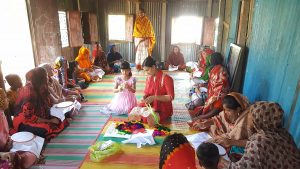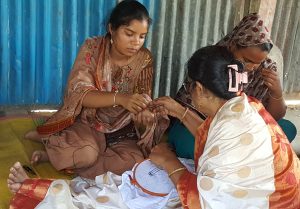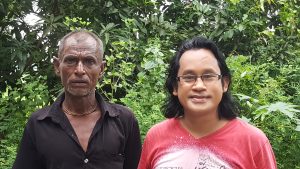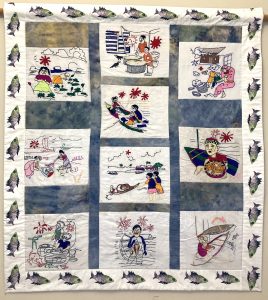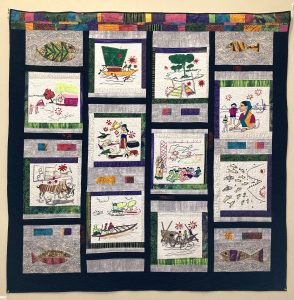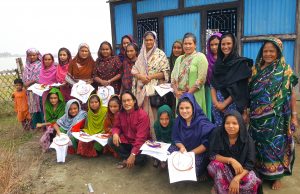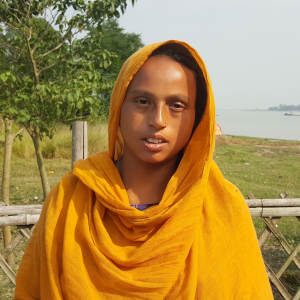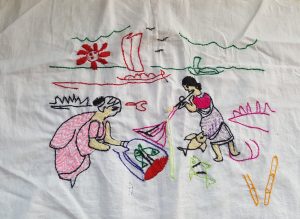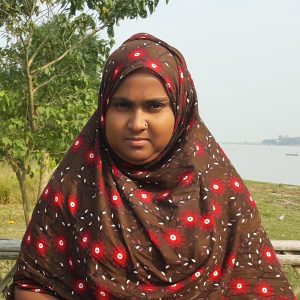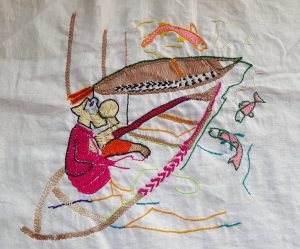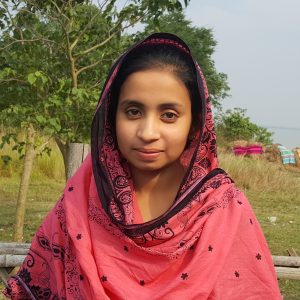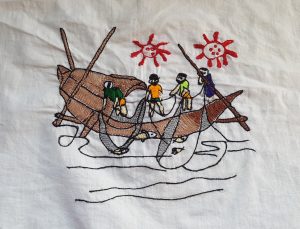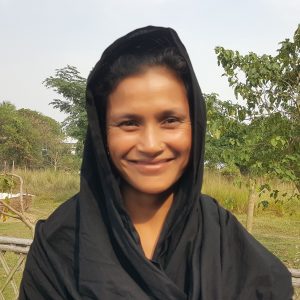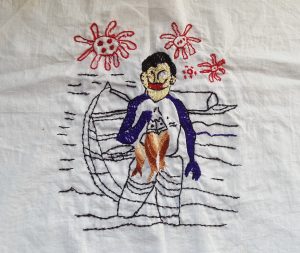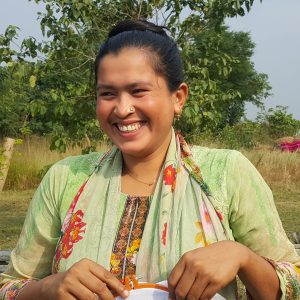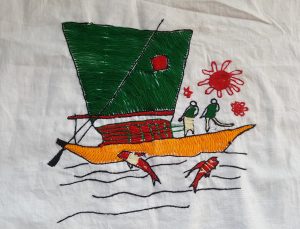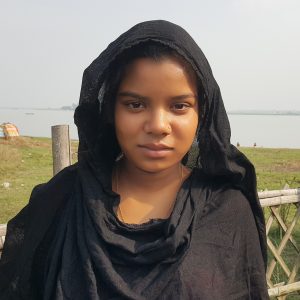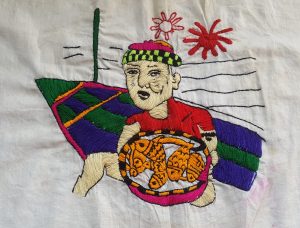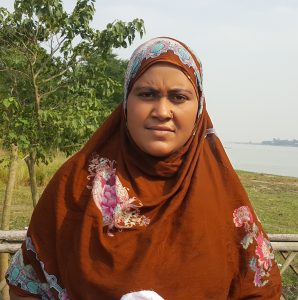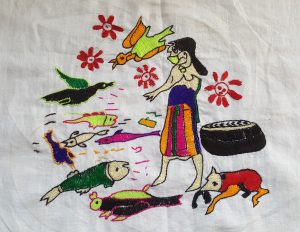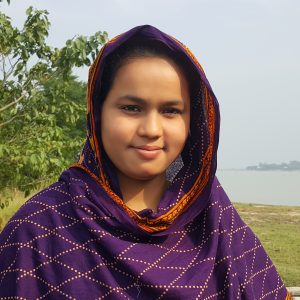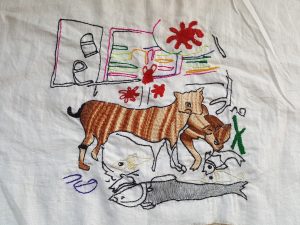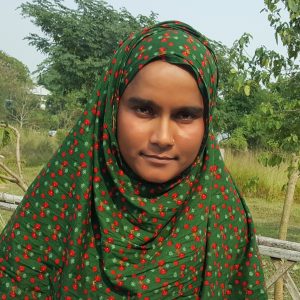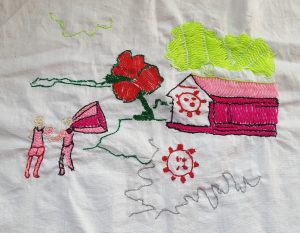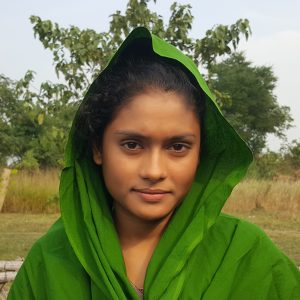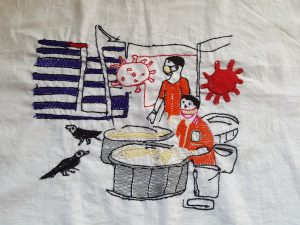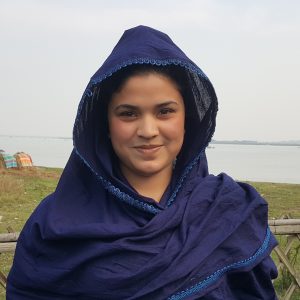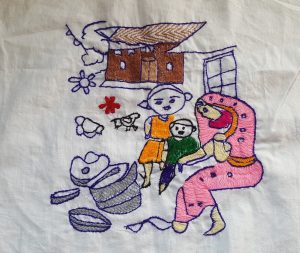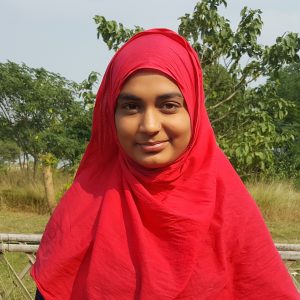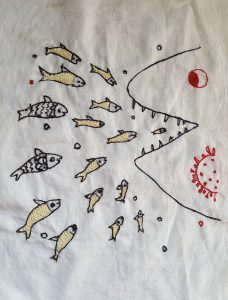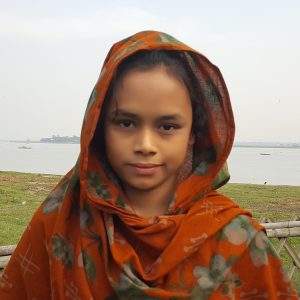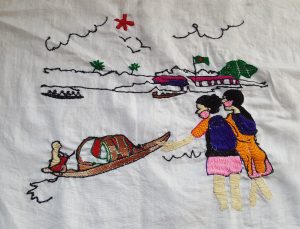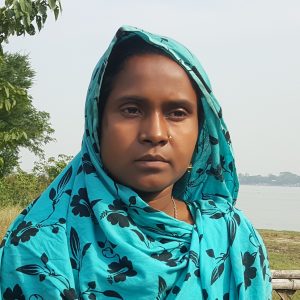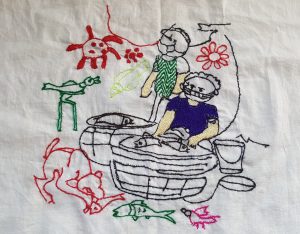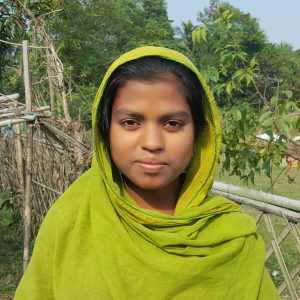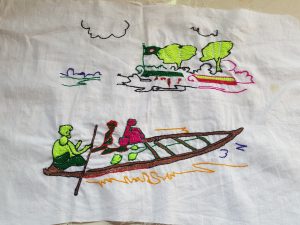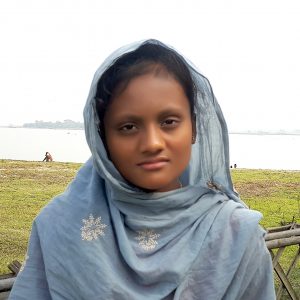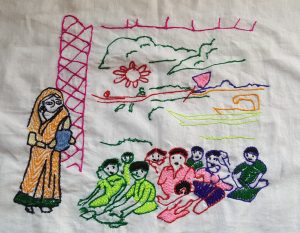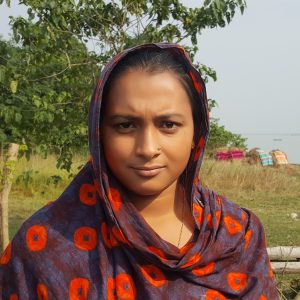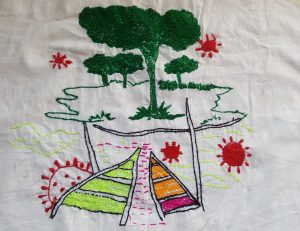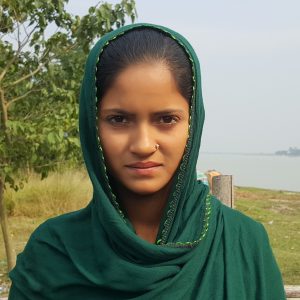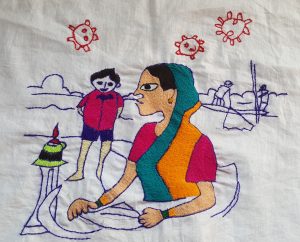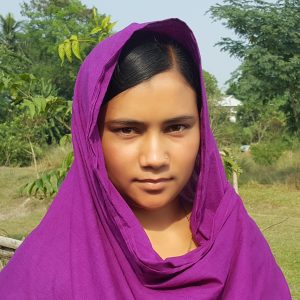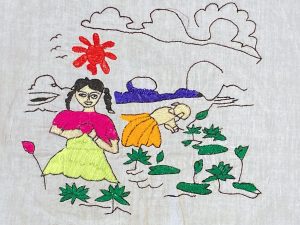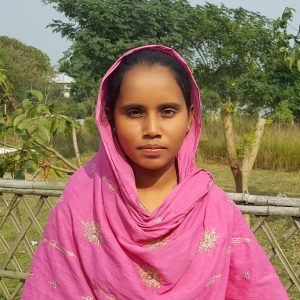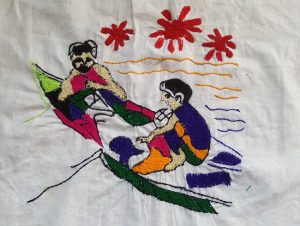The Bangladesh Covid Quilts
Introduction
These pages carry twenty personal stories of COVID from an isolated fishing community in Bangladesh that has been hit hard by the pandemic. They remind us that this global catastrophe has fallen most heavily on those who are socially and economically vulnerable.
The artists live on Mayadip, an island in the Meghna River. They belong to the community of River Folk, who depend for their livelihood on the river and include the River Gypsies, a sub-group that has suffered from extreme poverty and discrimination.
The embroidered stories were commissioned by AP in 2021 and produced by Subornogram, an advocacy group that has been working for River Folk since 2003. AP entered into a partnership with Subornogram in 2012 and raised funds for several floating schools.
The following year we commissioned stories for a quilt that described the Gypsies’ way of life – idyllic, but also demanding. One of the blocks, featuring a floating school, can be seen in the photo below. This quilt is profiled on this page which also carries a video on the team of quilters in Arlington Bethesda who assembled the blocks.
The pressure on the River Gypsies intensified in 2014, when thugs invaded the island to steal sand and almost killed Shahed Kayes, the founder of Subornogram, as described in this 2021 bulletin. Shahed fled the country and was only able to return in 2019, at which point AP was able to re-engage with one of our most effective partners.
Shahed is a well-known poet and he has posted several blogs on our site. He used his first blog to celebrate Mayadip in a poem: “Red scratch of fire in sleepless eyes; On the shores of this rushing Meghna river.” The blog also describes how Shahed gave the island its name during a 2006 visit.
In 2021, Subornogram launched several innovative new initiatives to strengthen Mayadip’s 250 families with AP’s enthusiastic support. Our first goal was to make jobs for people who were cut off from their sources of income as daily laborers by the pandemic. With this in mind AP raised $1,000 to commission a fishing boat (also known as ‘Mayadip’).
Half of the catch goes to pay the crew and the rest supports a feeding kitchen for the poorest families on Mayadip. By the end of 2022, we hope that Subornogram will also have rented agricultural land on the mainland, where Gypsy families can grow rice. Shahed also plans to produce mushrooms on the island.
Our second major goal has been to empower the Mayadip families against the COVID-19 pandemic. The government of Bangladesh has managed the vaccination of urban populations so well that over 70% of the population have been vaccinated.
But like so many minorities and isolated communities, the River Folk have fallen through the cracks. The island does not have a permanent medical center and families have to travel to the mainland to get tested or vaccinated – a long and expensive trip for people who earn on average 40 US cents a day.
Late in April, Shahed estimated that less than 50% of the Mayadip families had been vaccinated and said that there had been COVID deaths on the island – although no one ever knows the exact cause of death. As he explained in this blog, the pandemic has been particularly severe on women.
Subornogram and AP have responded to the threat with two new initiatives. First, we commissioned River Gypsy women to describe their experience of the pandemic through these stories as a way to ease pandemic stress and teach them a skill. We asked Hosneara, a fiber artist who managed the 2014 embroidery project, to lead the training and between them, they came up with the wonderful stories shown on these pages. All are beautifully stitched and – unlike any other COVID quilts – all carry the familiar virus motif in red.
We then asked Deborah Weir, a well-known fiber artist in California who has worked with AP on earlier quilt projects, to make the first quilt. Mary Harned and her sister, Donna Bergman, two skilled quilters who live in Raleigh, North Carolina, assembled the blocks into the second quilt. These two new quilts bring our collection of COVID quilts to twelve. They will all feature in a catalog. We also hope to exhibit them at the UN early in 2023.
Subornogram has also launched a community campaign to vaccinate Mayadip families with support from AP. Shahed assembled a team of 11 students who designed a campaign tee-shirt (photo) and visited the poorest families. By June 1, they had escorted 300 people – 25% of the entire island population – across to the mainland for both jabs. Local community leaders, including the Iman, have given their support and encouragement.
These two COVID initiatives are key parts of an integrated package that addresses all of Mayadip’s key needs: education, food security, employment, medical services and the empowerment of women. This is the first time we have attempted such a holistic approach for an entire community. As with all of our COVID initiatives, it all hinges on the enthusiasm and commitment of our community partners. When it comes to Subornogram and talented women like Hosneara, we are in very good hands!

